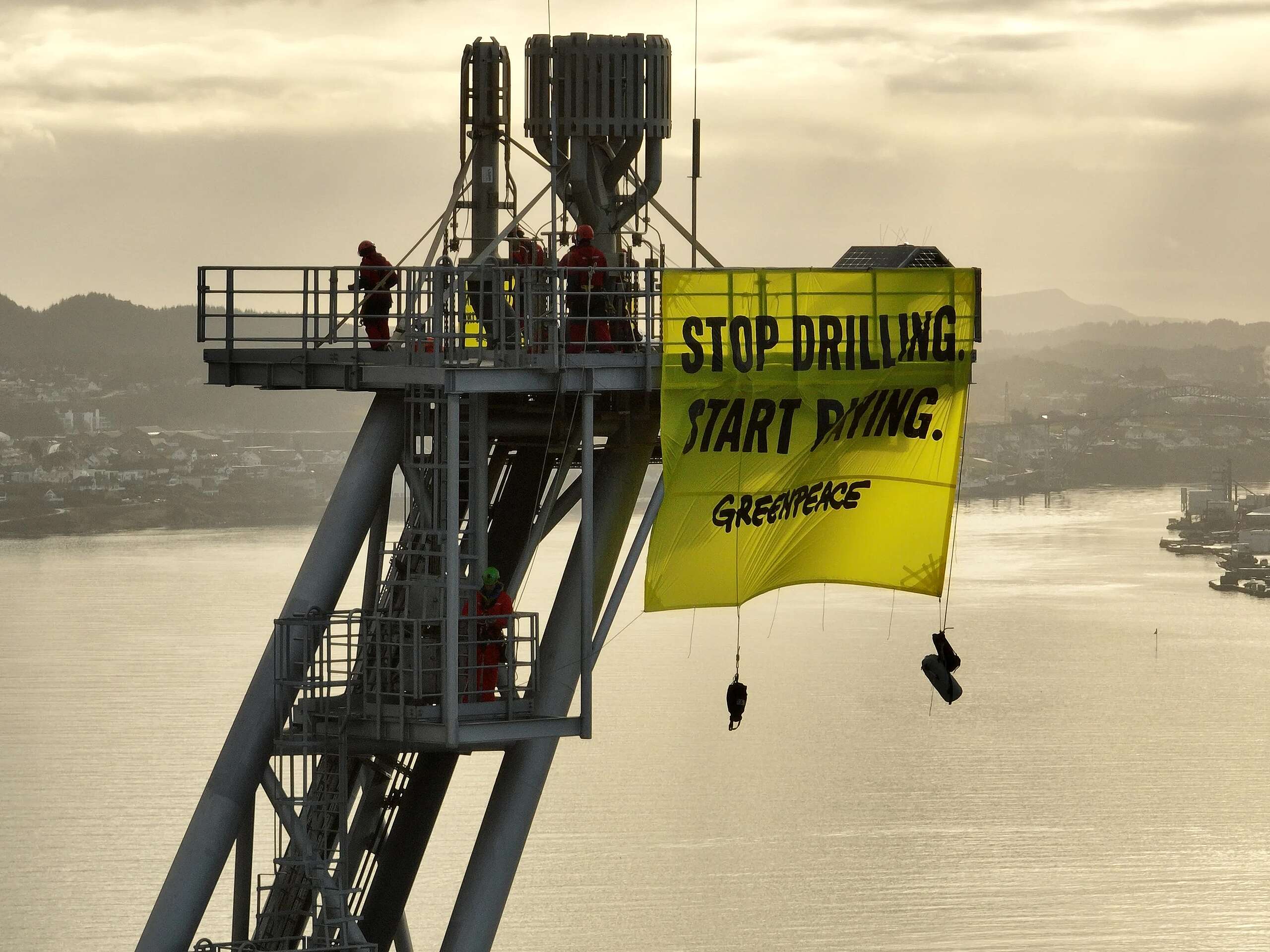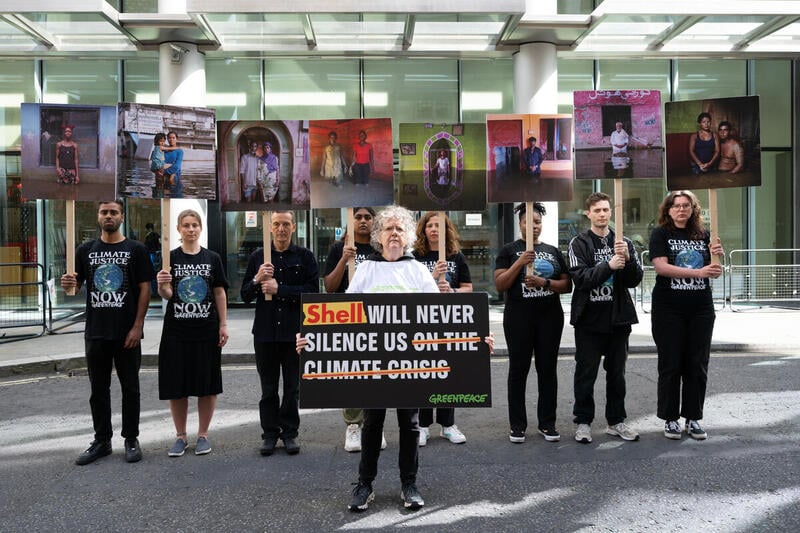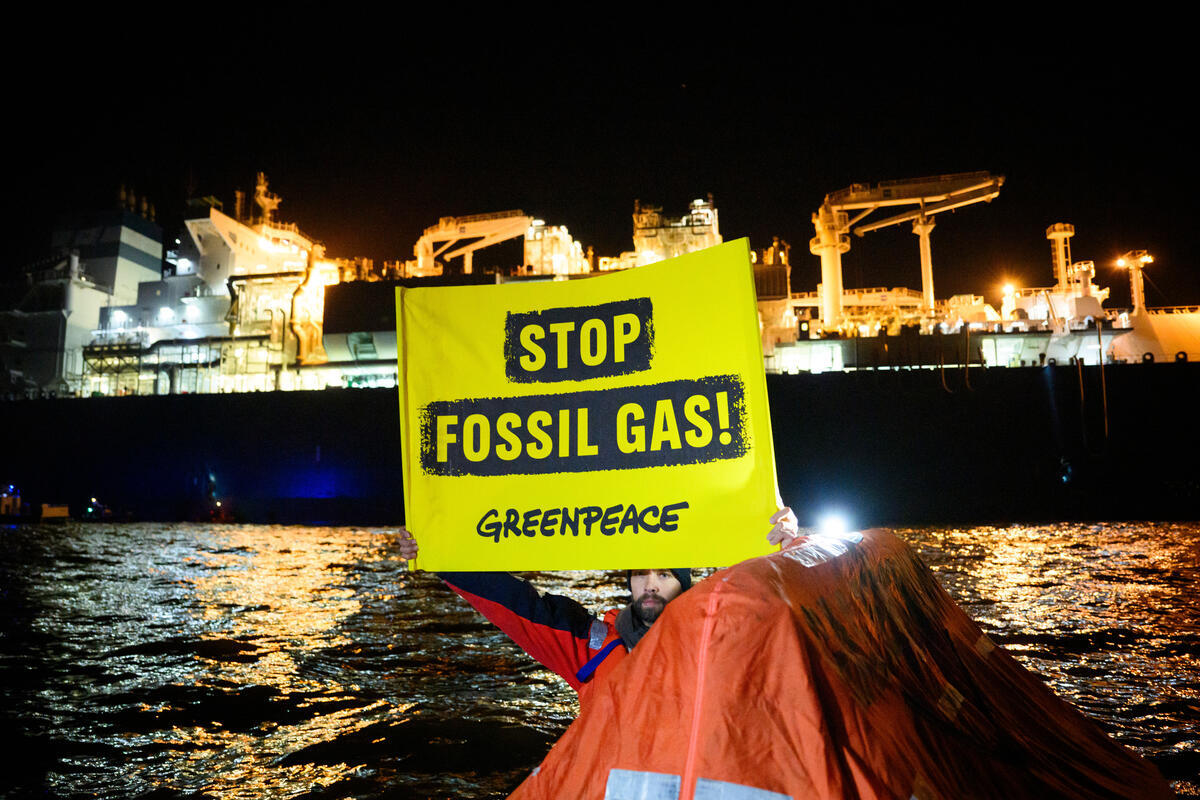In two weeks of worldwide protests, Greenpeace activists confronted fossil fuel executives with the remnants of personal and communal tragedy caused by climate disasters – to make clear the true cost of their greed. Containers full of broken toys and ruined furniture were among the personal effects shipped from areas devastated by floods and storms and laid at the doors of TotalEnergies, Eni, Equinor and OMV.
Survivors of extreme weather events joined Greenpeace activists outside the headquarters of oil companies, and in capital cities around the world – and at COP29 – to demand climate polluters #PayUp for the loss and damage they’ve caused. Analysis shows that small tax on just seven of the world’s biggest oil and gas companies could grow the UN Fund for Responding to Loss and Damage by more than 2000%.
Here are some of the highlights from global protests demanding Make Polluters Pay!
Marching for Climate Justice in Quezon City, Metro Manila
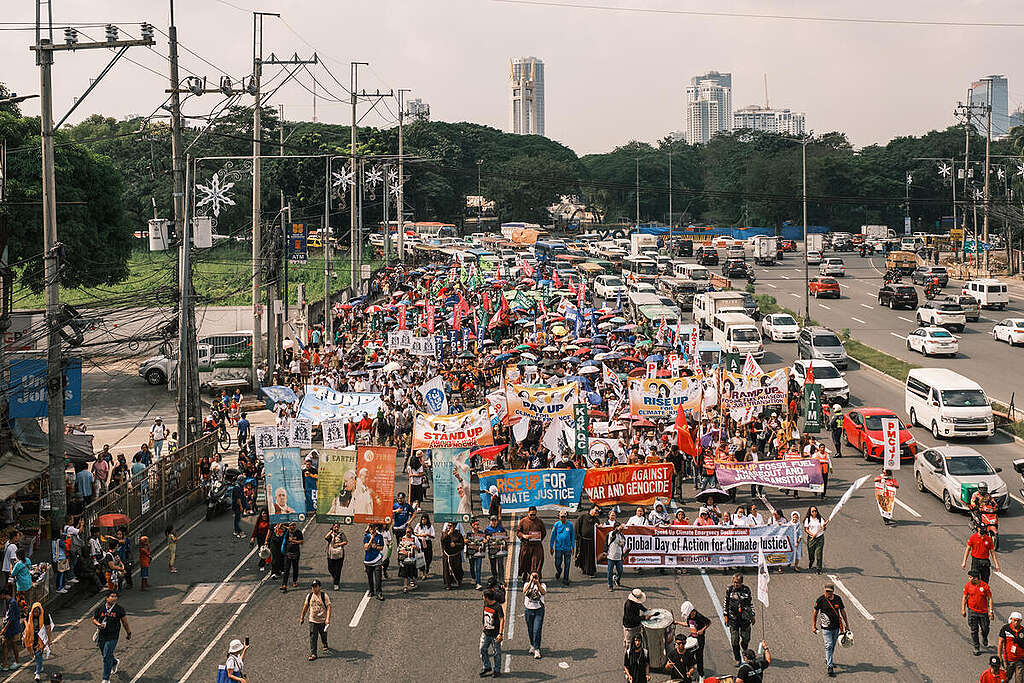
Greenpeace Philippines activists joined thousands of marchers to call for dirty energy companies to “pay up for climate finance” and to demand the government seek climate justice. The Philippines had just been hit by half a dozen consecutive storms and super typhoons within a month. Certain areas in northern Philippines were devastated by all six.
Greenpeace Southeast Asia Executive Director Naderev ‘Yeb’ Saño said: “These storms are a matter of life and death in my country and it is truly frightening to see so many out-of-season storms. One after the other, these storms are threatening our home. How we respond to them at COP29 is not optional. Finance and action is needed now!”
Activists fill Equinor executive’s yard with Brazil floods debris
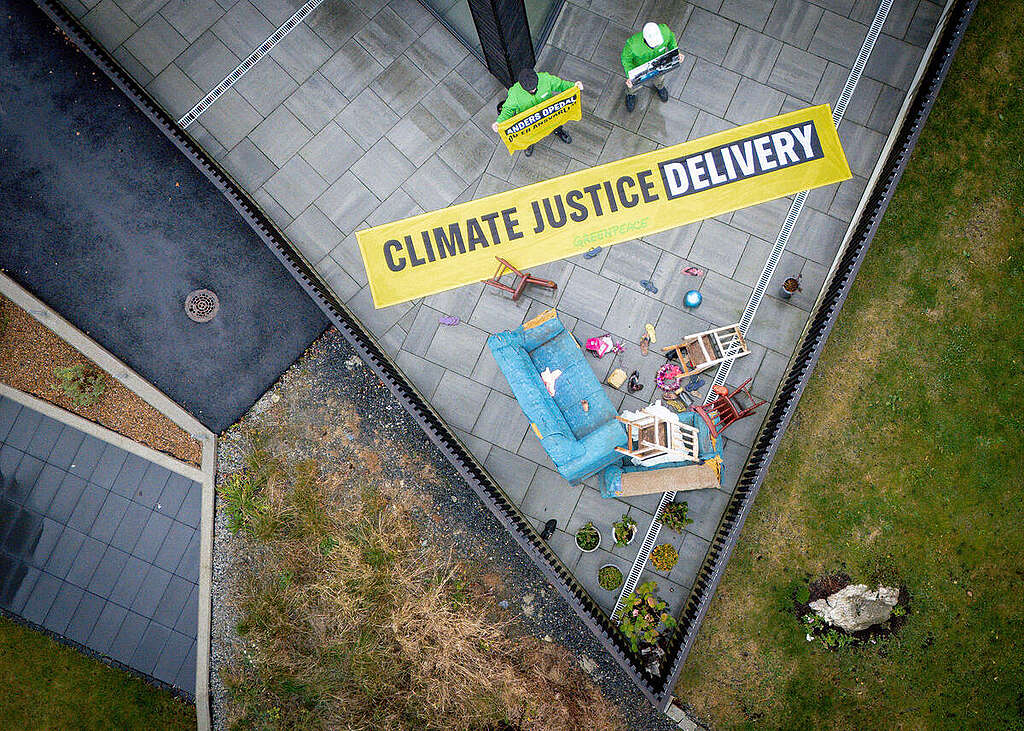
Greenpeace Nordic and Brazil activists confronted oil giant Equinor in Norway, filling the CEO’s personal yard with wreckage from flooding in Rio Grande do Sul, Brazil, which included broken toys, furniture, and other personal belongings provided by local communities and shipped to Norway.
Halvard Raavand, deputy programme manager for Greenpeace in Norway, said: “For too long, the fossil fuel industry has been allowed to pollute our atmosphere, accelerating the climate crisis. Now it’s time for Equinor and other oil majors to pay for the climate damage they cause, whilst also rolling back any plans of new climate-wrecking oil and gas fields.”
Anna Carcamo, Climate Policy Specialist at Greenpeace Brasil, said: “While the floods in Rio Grande do Sul alone generated an economic impact of more than US$17 billion, the amount currently pledged to the UN Loss & Damage Fund is just US$700 million. Taxing oil companies is urgent and necessary, considering that these companies have been profiting from greenhouse gas emissions for decades, despite knowing their devastating impacts on the climate and global society.”
Polluters confronted with tornado wreckage at Africa Energy Week
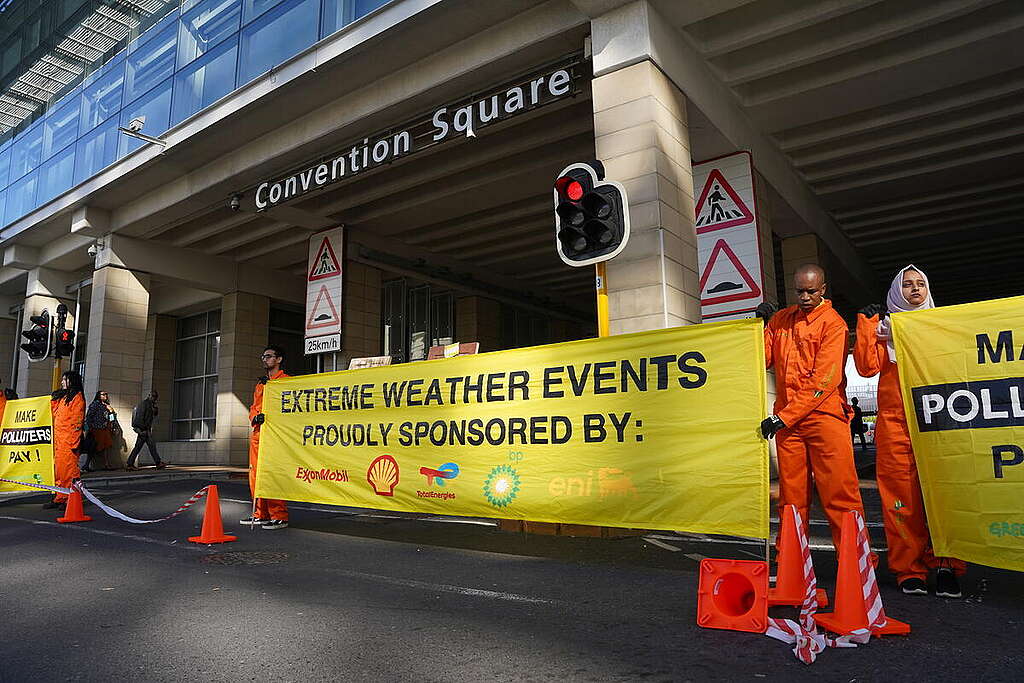
In Cape Town, Greenpeace Africa activists stormed Africa Energy Week with remains of the catastrophic tornado in Tongaat, Durban.
Cynthia Moyo, Greenpeace Africa’s Climate and Energy Campaigner, said: “We are returning debris from extreme weather events, symbolic of the damage caused by Big Oil, to the very corporations responsible. Africa will not remain silent while oil giants profit from our suffering. We cannot allow Africa to be sacrificed on the altar of fossil fuel profits. The voices of our communities must be heard, and the corporations responsible for this crisis must be made to pay for the harm they have caused.”
From South Africa to France: TotalEnergies = total destruction
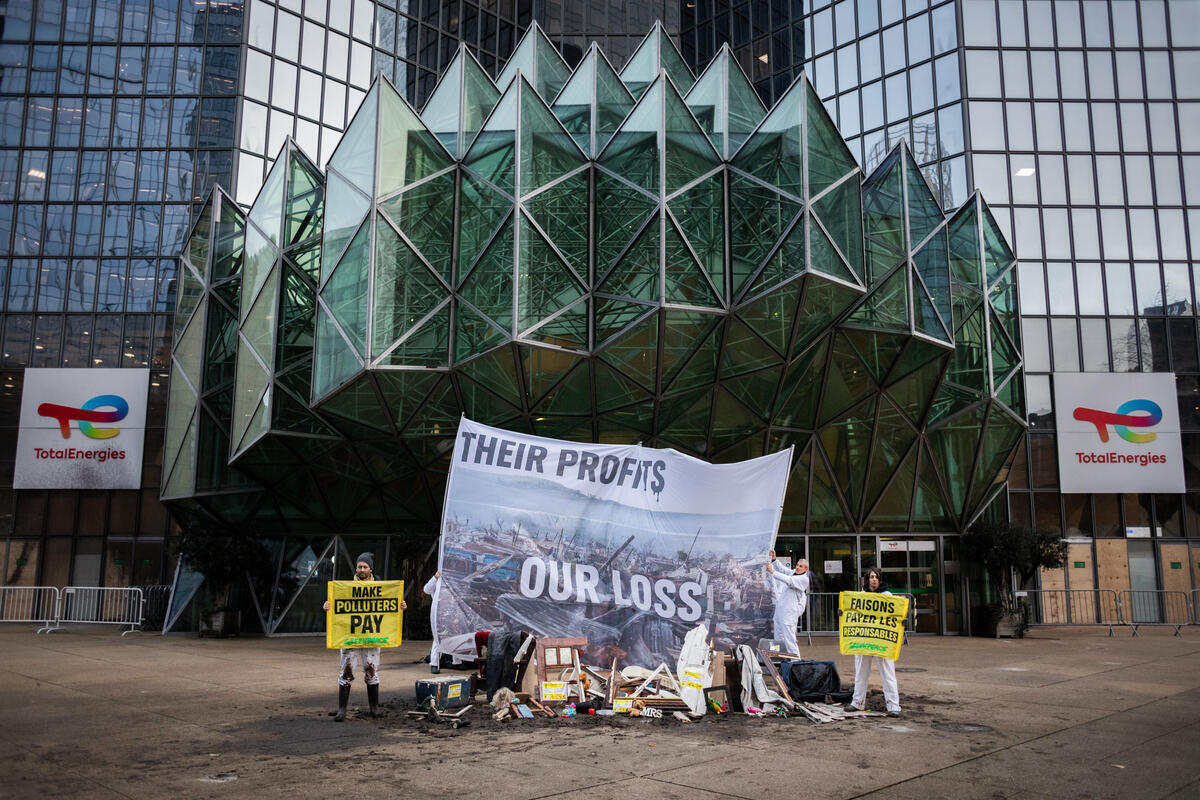
© Emeric Fohlen / Greenpeace
In Paris, Greenpeace France activists set up muddy personal and communal items from destructive floods in South Africa, in front of TotalEnergies’ headquarters.
Sarah Cleaver, Climate campaigner in Greenpeace France, said: “While people are losing their homes and their lives, TotalEnergies is still collecting massive profits from the climate crisis. Now it’s the duty of governments to make them pay.”
Climate wreckers like ENI must pay for extreme weather disasters
In Rome, Greenpeace Italy activists deployed remnants from recent floods in Italy and Brazil in front of ENI’s headquarters.
Federico Spadini, climate campaigner at Greenpeace Italy, said: “Extreme weather events are wrecking the lives of millions of people around the world. It’s time for big oil and gas companies like ENI to pay for the climate disasters they are causing. We can no longer tolerate people having to pay while these companies continue with their irresponsible emissions in search of record profits.”
Storm Boris wreckage delivered to oil and gas giant in Bucharest
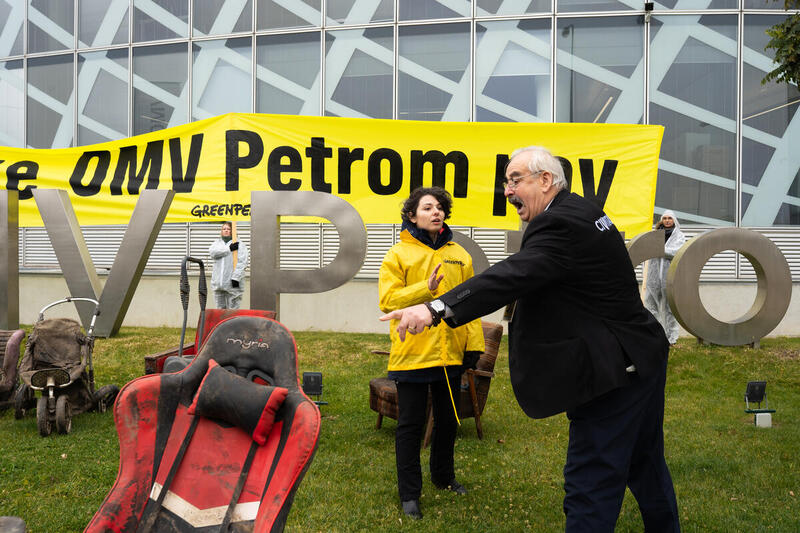
In Bucharest, Greenpeace Romania activists returned debris left behind by floods that hit Galati in September to the oil and gas giant, OMV Petrom.
Marian Mândru, Campaigns Coordinator, Greenpeace Romania, said: “Storm Boris left behind a tragedy. OMV Petrom and other fossil fuel giants should take responsibility for the climate crisis and the damage done. These companies continue to prioritise their profits and expand their fossil business, ignoring the climate consequences. We demand OMV Petrom to pay for the destruction and stop its investments in gas.
Protests in Spain: ‘Stop Climate Change. Save Lives. Make Polluters Pay’
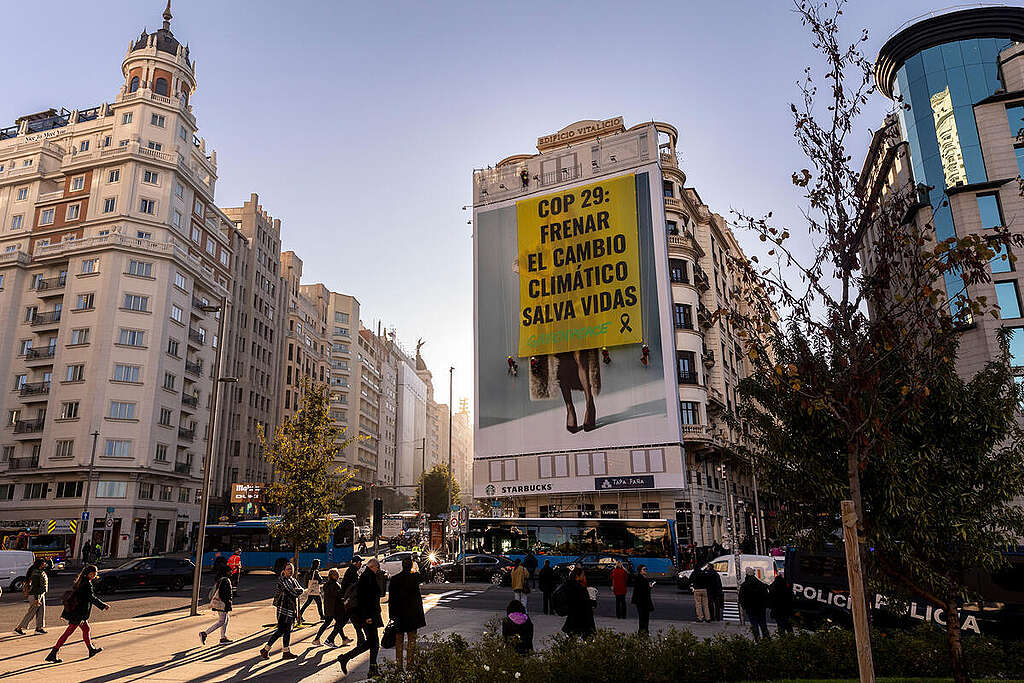
In Madrid, Greenpeace Spain activists unfurled a huge banner with an urgent message “Stop climate change, save lives”, in memory of the Valencia flood victims.
Pedro Zorrilla, who represents Greenpeace Spain in the Greenpeace delegation at COP29, said: “Climate action is about promoting the energy transition, but, above all, it’s about protecting people’s lives. Governments must make polluters pay the costs of the climate emergency – every tonne of CO2 they emit is putting more lives at risk.”
An unmissable message for decision makers in Brussels
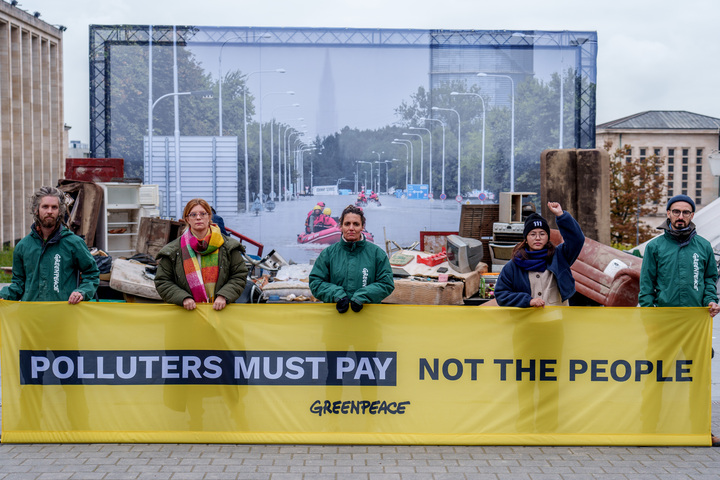
In the centre of Brussels, Greenpeace Belgium, together with other environmental organisations, displayed remnants from deadly floods in Poland and Brazil earlier this year.
Joeri Thijs, spokesperson for Greenpeace Belgium, said: “We want to show our political leaders, who are currently negotiating unacceptable budget cuts in climate policies, the terrible cost of inaction. It’s imperative that our governments put an end to their hand-outs to the fossil fuel industry, and make them pay for the damage caused, which, like the debris we have collected here shows, is dramatic and already a reality that is hitting citizens across the globe.”
Flood damage laid at OMV’s doors
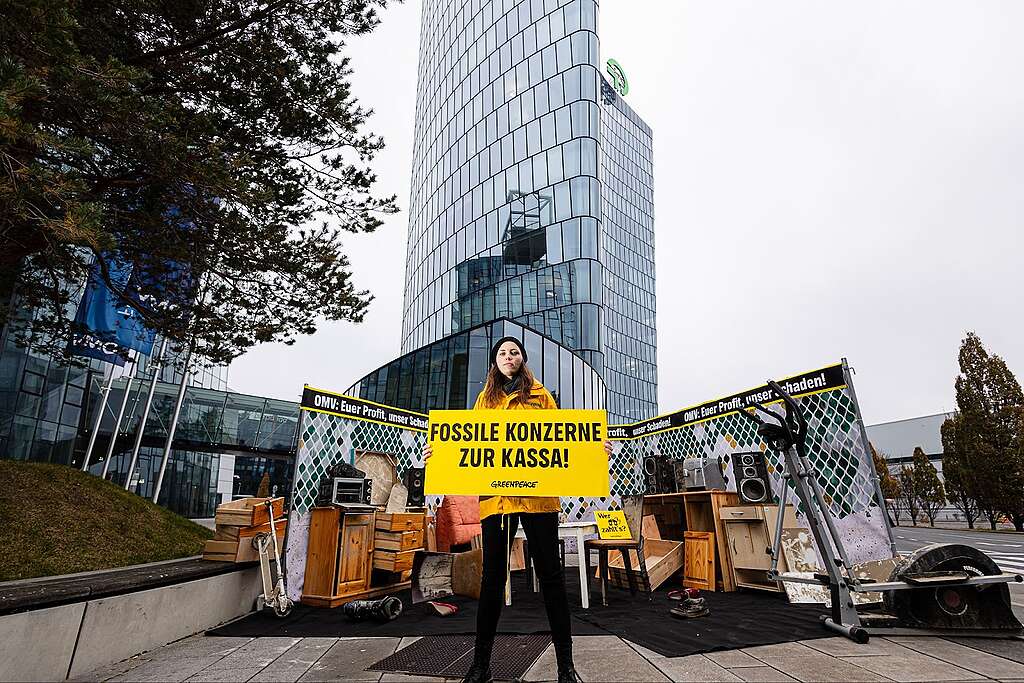
In Vienna, activists set up a living room out of debris from recent floods in front of OMV’s head office.
Marc Dengler, climate and energy expert at Greenpeace Austria, said: “This year alone Austria experienced extreme heatwaves and devastating floods. It is about time we clearly named the main perpetrators of the climate crisis and held them accountable. Oil and gas companies like OMV must start paying for the damage they cause with their daily business.”
Climate justice animation by Greenpeace Middle East & North Africa
Newly released animation tells stories of loss and damage in the MENA region.
Hanen Keskes, Political Campaigns Lead at Greenpeace MENA, said: “2024 has been another painful reminder of the climate crisis, with disproportionate impacts on vulnerable regions such as the Middle East and North Africa —scorching temperatures, floods, wildfires—all devastating our communities. Coinciding with COP29, Greenpeace MENA released a powerful animated video sharing real-life stories from Iraq, Algeria, and Tunisia, where people speak out against fossil fuel giants exploiting the region’s resources for profit, while local communities bear the consequences. Taxing those profits for compensation isn’t just our right; it’s justice. We owe it to ourselves, our children, and our land to demand that wealthy countries hold their polluters accountable. The time to fight for a livable, just future is now.”
‘Taxing the fossil fuel industry is a moral imperative’ – Greenpeace South Asia
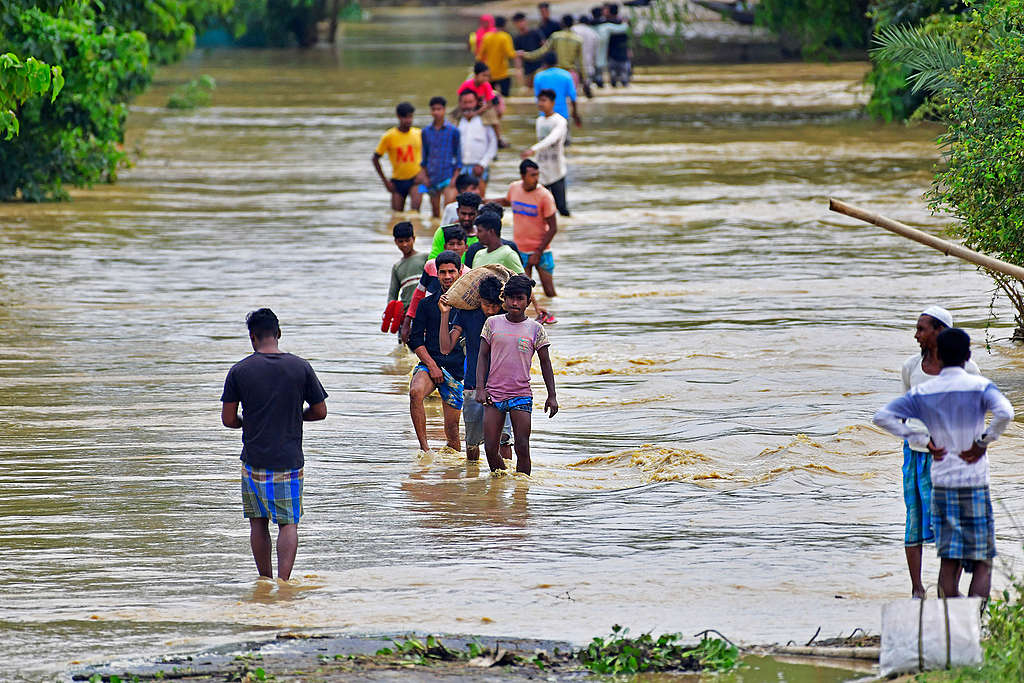
© BIJU BORO/AFP via Getty Images
Avinash Chanchal, Greenpeace South Asia Deputy Program Director for Campaigns, said: “As we witness the escalating impacts of climate change – ranging from devastating floods and heatwaves in our region to catastrophic storms across the globe – it’s clear that fossil fuel companies have been profiting at the expense of people’s lives and the planet’s future. Taxing the fossil fuel industry is not just an economic strategy, it’s a moral imperative. These companies must be held accountable for their role in fueling the climate crisis. The funds raised through a climate damages tax can be crucial in addressing the loss and damage borne by the most vulnerable communities, particularly in the Global South. We can’t afford another broken promise and COP29 must deliver a financial mechanism to hold fossil fuel companies accountable for the climate damage.”
Stop Drilling Start Paying
Greenpeace’s Stop Drilling Start Paying global campaign is working with millions of people to stop oil and gas companies from expanding, resist their intimidation, and force them to pay for the climate loss and damage already felt by people across the world. Join us.
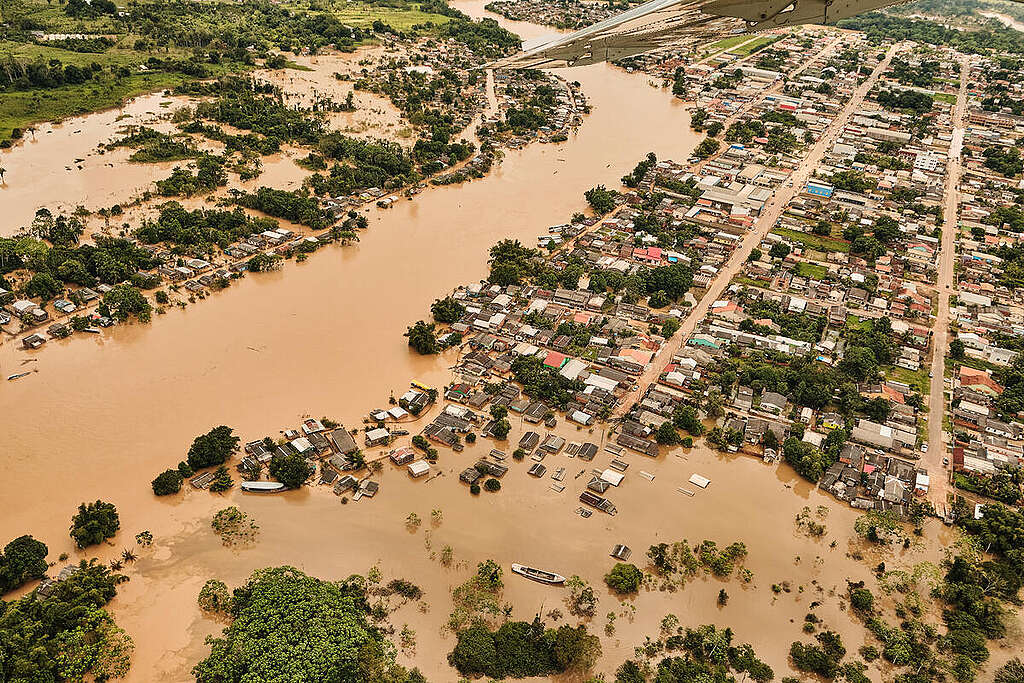
It’s time to make the polluters pay. Sign now to hold the oil and gas corporations accountable, and support a safe and fair future for all.
Add your nameNote: This page is being updated as new pictures come in.

